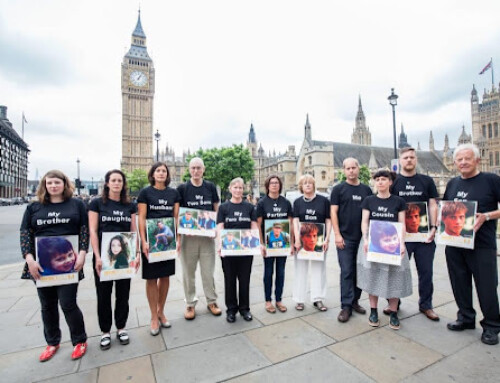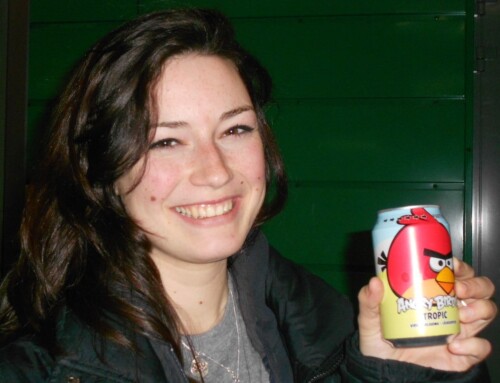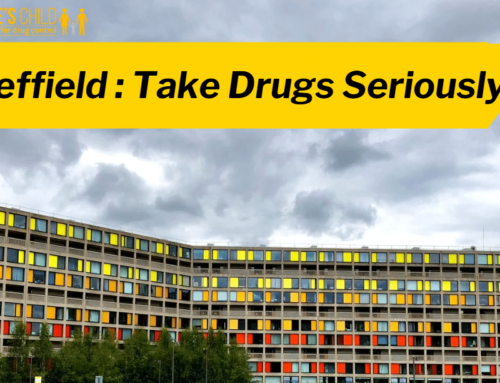We were delighted to catch up with Nick Danziger at the recent Commission on Narcotic Drugs event in Vienna. Nick is an award-winning photographer, among which are a 1st Prize in the World Press Photo’s Single Portrait category, an Honorary Fellowship by the Royal Photographic Society and the Royal Geographical Society’s Ness Award in recognition of his influence in increasing awareness of social, political and environmental issues affecting contemporary societies. Recently, Nick turned his lens towards substance-users and treatment centres around the world. We were delighted to catch up with Nick at the recent Commission on Narcotic Drugs event in Vienna to talk about his latest project, and his view on substance mis-use, and the ongoing drug war.
Why are you at CND?
I’m at CND because over the last two years I’ve been taking pictures focusing on treatment, users, and a variety of issues surrounding substances that are, more often than not, illegal.
Can you tell me a bit about your exhibit?
I hope that the exhibition will be seen, particularly in this location, by policy makers. I hope it will go some way to affecting them because of the stories of the people within the pictures, because many of the people in this kind of environment don’t really get out into the field. I think it’s really important to understand how people are being affected by their decisions, or lack of decisions. This exhibit is the second exhibition that has been held here (at the CND), and it shows a variety of individuals that have been users, or currently are dependent and receiving treatment.
What story are you hoping to tell through your photographs?
I’m very much hoping that people who might not otherwise have access to these types of situations and individuals will see how individuals are or are not coping with the situations that they have found themselves in. So hopefully there will be a greater understanding of not just how people’s lives are affected by using certain substances, but also that there are possibilities of hope and rehabilitation through treatment centres where those are available.
What would you like delegates at the CND to think when looking at your photos?
That’s a very difficult question, but I think it would be good if they could empathise with the individuals in the photographs. I mean in many cases it could be your father, your son, your brother, your sister. They’re individuals who for one reason or another have found themselves in a situation that they often find very difficult to get out of. I think empathy is very important, and to understand that even though in the picture you might see someone who is a user, they are often part of a family. More often than not, they will have children, or are married, or have parents. Because of that the whole family, and indeed, whole communities can be affected by this issue.
What do you think your photos say about drug policy?
Well I think it varies from country to country, but clearly, I think that where treatment is available people have a chance of escaping the difficulties that they find themselves in. Where treatment isn’t available, obviously people are more or less left on their own to cope with something that is very difficult to do if you don’t have support mechanisms. I think what I’ve seen, not just in this type of work but in much of the work that I do across the world, is that systematic change is really important, and that can only be achieved by governments. I think governments need to have policies that can and will help individuals escape the situation that they find themselves in. I think for individuals or families or communities it’s very tough for them to manage on their own. Consequences are often too varied and complicated. I hope that one of the messages that is drawn from this is that where treatment is available, communities, families, and individuals have a much better chance of putting their lives back together.
How do you think we could make drug policy better fit the needs of the people shown in your photographs?
I think that’s a difficult question to answer. I’m not a politician, I’m a photographer. Maybe that’s an excuse, but I think that one always has to listen. I think it’s very important that we don’t go in with preconceived ideas. I think it’s often very difficult for people to drop their prejudices. I have met extraordinary people on this project, and have always found that when you show respect and kindness to people it is reciprocated. I think it’s very important to look at this problem as one that often affects individuals less fortunate than oneself. I think that it’s important to realise that there’s a set of circumstances that leads people to use or abuse substances, but equally I think there’s a set of circumstances that need to be addressed to help people out of that dependence. And to help people out of that dependence I think the issue needs to be tackled at a government policy level. I meet extraordinary healthcare professionals who are dedicating their lives to helping individuals, but I don’t think they can manage on their own. Many of those people also suffer burnout and difficulties because they give so much of themselves to help others that they often forget about themselves.
Any other Comments?
I’ve taken images related to this subject for decades now, and I don’t think that there is any country that I have visited, and I’ve worked in and visited well over a hundred countries, that isn’t affected. I think that this affects everyone. Borders and boundaries just no longer exist. I think it’s difficult to quantify, but I think the problem is getting larger. People are confronted with more and more difficulties in their lives, and they seek ways to escape their personal situations, or family situations, or economic situations. Or they might be seeking pleasure, or have a variety of other situations that lead them, unfortunately, to use substances that will harm themselves and their families. And I think extreme poverty just adds to the mix. I have seen communities that have been devastated by these substances which are more and more readily available, and at a cheaper and cheaper cost to the person who wishes to use or abuse them.
Can you tell us about the story of the woman behind you?
Like many individuals, she had a very difficult childhood, and fell in with the wrong crowd, began using, and then ended up dealing in substances to pay for and finance her use. She was arrested, and has had several prison sentences. So, she has been incarcerated, but like many individuals she has spent years and years battling with her addiction, and today she has been able to stop using the substances that have affected her life. In her particular case, she has turned to religion but undoubtedly many people find different means. She’s one of the unusual ones that I’ve met because she seems to have escaped her situation through the influence of a peer. She is also aware that it hasn’t always been successful for others that she has also tried to help.




Leave A Comment